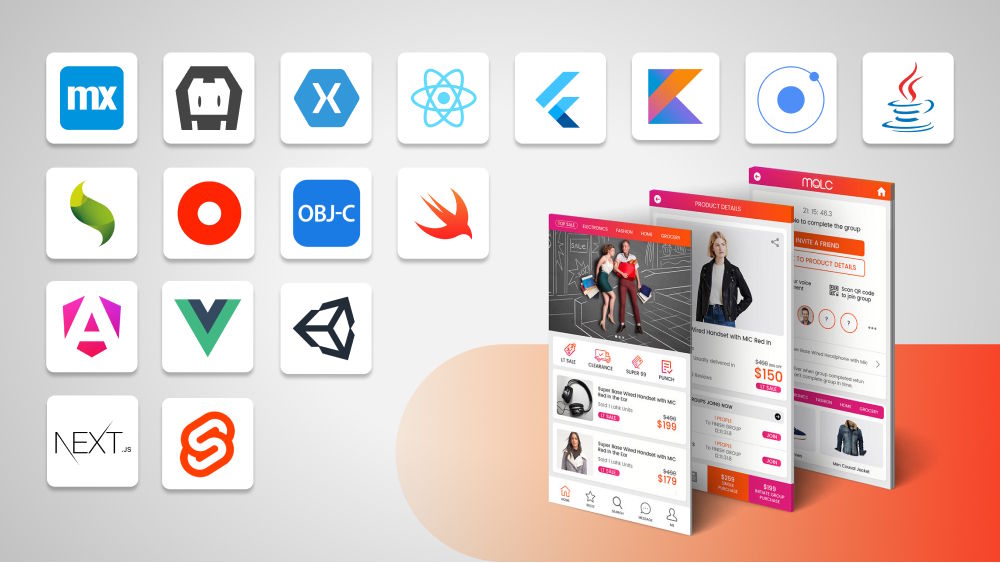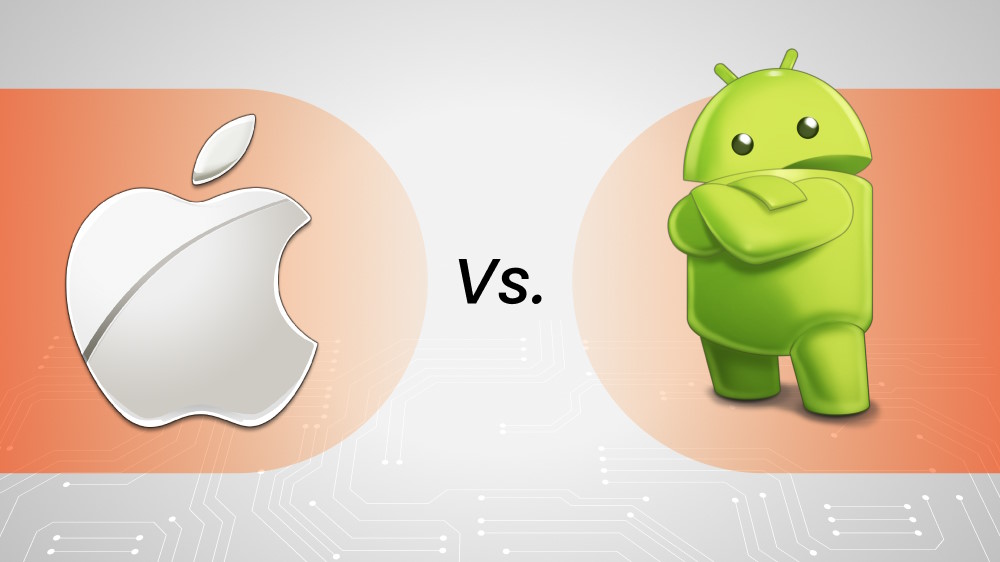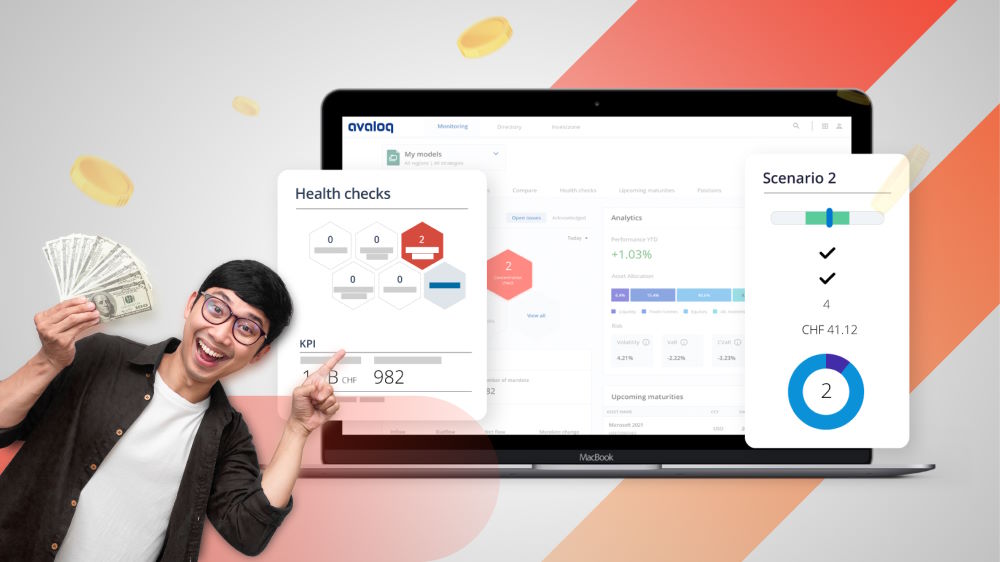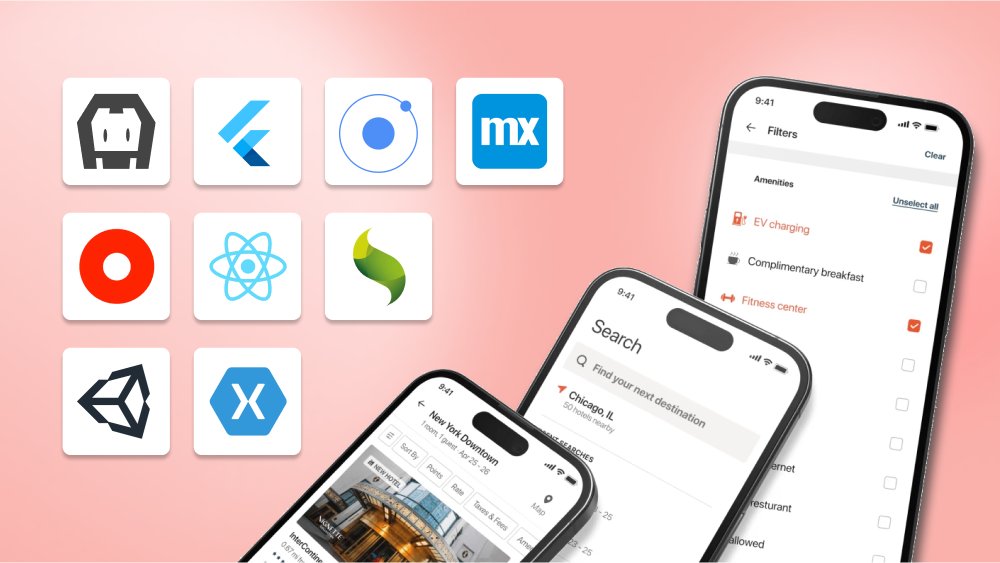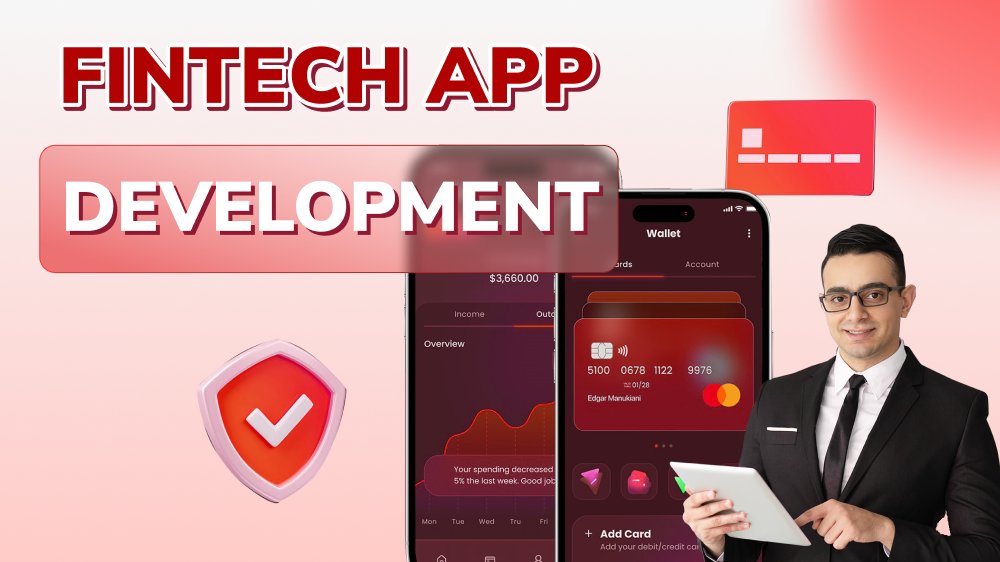eCommerce Application Development: How to Balance Scalability and Performance

Content Map
More chaptersA strong eCommerce app strikes the perfect balance between speed, flexibility, and its ability to handle a large volume of traffic during peak seasons. In other words, it is an application that balances scalability and performance.
Nevertheless, everything comes with a trade-off, right? If you choose to prioritize performance, for example, the system’s capability to handle a large volume of visitors may suffer. Conversely, focusing more on scalability and putting performance aside might compromise seamless user experience.
Crafting a robust eCommerce app involves striking a harmonious balance between performance and scalability, even during the early stages of the development process. To build a strong foundation, it is crucial to build strategies that prioritize both aspects, from the initial eCommerce app idea phase through the entire development journey. This article will reveal insights to help you maintain this balance and deliver an eCommerce app that is both agile and resilient.
Key Takeaways:
- Balancing scalability and performance is key to a resilient and flexible eCommerce mobile application.
- Businesses shouldn’t trade scalability for performance or vice versa, as both are crucial for facilitating a seamless user experience and competitive edge.
- There are two approaches to improving an app’s scalability: vertical scaling and horizontal scaling.
- For performance improvement, companies need to consider multiple factors such as image size, code optimization, content delivery networks, load balancing, and more.
eCommerce app Development: Scalability & Performance
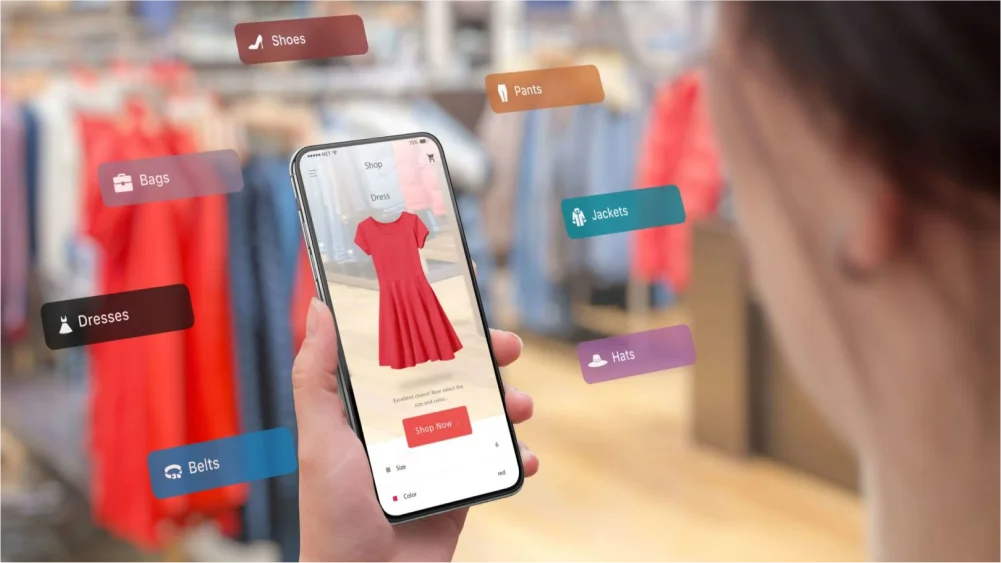
Some might use scalability and performance interchangeably, but they are two distinct terms. To thoroughly understand how to optimize and balance scalability and performance for eCommerce apps, let’s take a deep dive into their meanings and metrics.
Understanding Scalability
What Does Scalability Mean in App Development?
Scalability in app development refers to an application’s ability to handle increasing loads—such as more users, data, or transactions—without a drop in performance or reliability. A scalable app adjusts to growing demand by utilizing additional resources like servers, databases, or network bandwidth. This ensures it remains functional and responsive as it expands.
Metrics
There are no general, on-size-fits-all metrics for scalability. Instead, eCommerce app developers test the app’s scalability during various scenarios. Testing methods include:
- Load Testing. Used to test an application’s performance by simulating user demand, measuring response times, resource usage, and stability under different traffic levels. Load testing helps identify issues like system bottlenecks before the app reaches its peak capacity.
- Soak Testing. Soak testing is used to evaluate a system’s performance by applying a sustained load over an extended period to detect issues like stability and response time under prolonged use. It checks how the system behaves and performs under long-term stress.
- Spike Testing. Used to assess how an application handles sudden, extreme increases or decreases in traffic and how quickly it recovers afterward. It identifies performance issues by simulating rapid load changes in a controlled environment.
- Stress Testing. Used to evaluate how an eCommerce mobile apps behave under extreme or unfavorable conditions to identify its limits and potential failures. It tests the system’s stability and resilience, revealing weaknesses.
Understanding Performance
What Does Performance Mean in App Development?
Performance in app development refers to how effectively and efficiently an application functions, focusing on its speed, responsiveness, stability, and resource usage. It measures how well the app fulfills user demands, including how quickly it loads, responds to interactions, and operates without errors. Strong application performance is essential for delivering a seamless user experience and ensuring the app runs smoothly under various conditions.
Metrics
There are several metrics to measure a system’s performance. These metrics can be applied to an eCommerce mobile app as well.
- Response Time. One of the most common metrics to measure performance for eCommerce mobile apps and other kinds of apps. It refers to the time it takes for the system to react to a user’s request.
- Throughput. It is commonly expressed in page impressions or requests per second that an app can handle in a given amount of time.
- System Availability. The ratio of the system’s uptime to its total downtime shows how much of the system is available.
- Resource Utilization. This refers to the proportion of time a system resource is actively in use compared to the total time it’s available.
Why You Need Both Scalability and Performance in eCommerce App Development

At this point, you might be wondering if you can trade scalability or performance or vice versa. The short answer is no, you shouldn’t, and the reasons will be explained in the following sections.
Scalability and Performance Relationship
Scalability and performance are closely related. To achieve success in an e-commerce mobile app development project, one needs to understand this relationship well.
Performance as a Foundation for Scalability
If an app performs well under normal conditions, it is more likely to handle increased traffic without significant performance degradation. Handling requests well is a prerequisite to scaling up the mobile eCommerce app to take care of more users and transactions.
Scalability Enhances Performance
Whether the development team chooses to scale horizontally by adding more machines or scale vertically by upgrading the existing ones, the app should be able to handle growth efficiently and maintain the same high-quality performance.
Cost Efficiency
Managing resources well and maintaining operational efficiency prevents an eCommerce business from overspending on infrastructure. This can lead to overall cost reduction.
Another way of ensuring cost-efficiency is consulting a credible eCommerce app development company. You won’t need to manage any on-premises infrastructure.
Why You Need Both During Ecommerce App Development Process
Seamless User Experience
It doesn’t matter who your target audience is; most users nowadays are used to having a seamless online shopping experience. Put yourself in your buyers’ shoes - would you stay in an app that lags and slows down every time you add an item to the cart? Here is a statistical reminder: Conversion rates might drop by 7% for every one-second lag in page response time.
Ability to Handle Traffic Spikes
There are several occasions where your app might expect a sudden traffic spike – Black Friday, Double 11 Day, Christmas, etc. Being able to handle traffic spikes during this day without crashing provides your customers with a satisfying shopping experience and even expands your app’s global reach.
Efficient Inventory Management
Scalable, high-performing eCommerce apps help online store owners avoid overstocking or understocking by offering real-time inventory insights accessible from mobile devices.
Gaining A Competitive Edge
Lastly, the eCommerce app market is quite competitive. Your app is more likely to retain and attract customers if it scales effectively and operates smoothly. These features also set your business apart from other competitors in app stores.
Improving Ecommerce App Scalability
Scaling an app in the initial stages or phases of an eCommerce mobile app development project makes sure that the application can handle loads as it grows. It is a proactive process with careful planning involved. Here are two approaches you can take to scale your app: Vertical scaling and horizontal scaling.
Vertical Scaling
Also known as “scaling up,” it involves expanding the resources of a single server (E.g., upgrading its CPU or storage) to improve the mobile commerce app’s performance and capacity. It upgrades the existing infrastructure to handle higher demands without adding new servers.
Key Considerations
- Hardware Upgrades: Vertical scaling often enhances the server’s processing power. If you want to upgrade processing power, for example, upgrading the CPUs would be the result of vertical scaling.
- It is suitable when: You expect growth and the server can handle growing demands that are quite predictable. It is a cost-effective approach for smaller eCommerce businesses.
- Limitations: Since you rely on existing software, vertical scaling will become impossible due to hardware restrictions.
- Scaling Software: In addition to updating hardware components, scaling up can also mean updating your software components like a database or operation system. The aim is to utilize the enhanced hardware by upgrading the app.
Horizontal Scaling
Horizontal scaling, or scaling out, refers to the adding of multiple servers to distribute the workload across the system, rather than upgrading a single server’s resources. This method is ideal for handling larger databases and managing numerous queries efficiently by spreading the demand across several servers.
Key Considerations
- Load Distribution: The traffic is shared among numerous servers in horizontal scaling. These servers are referred to as server clusters. They lessen the strain on a single server by splitting up the workload.
- Flexibility: Compared to vertical scaling, horizontal scaling flexes with demand, providing flexibility for the mobile commerce app. By dynamically adding servers to the cluster as traffic spikes, you can match your infrastructure’s capacity precisely to the fluctuating needs of your business.
- System Resilience: With multiple servers sharing the workload, you create backup systems. If one server fails or has issues, the other servers can continue to work, preventing the app from crashing.
- Limitations: Horizontal scaling is complex, as it demands the team to apply data synchronization, effective resource allocation, and load balancing mechanisms effectively. Even though it requires a bigger upfront investment, horizontal scaling will be more cost-effective in the long run.
- It is suitable when: For eCommerce apps that expect rapid or unforeseen growth, horizontal scaling provides users with a safety net to maintain performance and reliability.
Improving Ecommerce App Performance
An app with consistent, high-quality performance improves user experience, reduces bounce rate, and even increases conversion rates. The following are some effective strategies to improve performance.
- Optimize Images: To ensure a high-quality user experience without compromising load times, resize images to reduce file sizes while still preserving the visual integrity of the content.
- Minimize HTTP Requests: Combine or reduce the app’s elements to reduce load time.
- Optimize Checkout Process: The checkout process should be straightforward to minimize the cart abandonment rate. Complicated checkout procedures can cause 17% of customers to leave in between purchases.
- Monitor Server Response Times: Keep an eye on server performance. If it doesn’t meet your standards, optimize as needed to ensure quick response times.
- Use a Content Delivery Network (CDN): You should distribute content across multiple servers to ensure faster delivery to users in different locations.
- Cache Content: Use caching techniques to save frequently used data on the user’s device. This reduces the need to repeatedly fetch it from the server and speeds up uploading times.
- Reduce Third-Party Integrations: Manage plugins and third-party integrations so they do not slow down your app.
- Test Performance Regularly: Test and monitor the app’s performance regularly to fix any issues. A quarterly check-up is recommended.
These are some of the general strategies to improve performance. You can also consider other elements, including load balancing, database tuning, hosting, security, and so on.
Managing The Complexity of Scaling and Performance
Navigating scalability and performance for eCommerce apps can be a complex task. Here is a summary of the key strategies you need to balance scalability and performance:
- Pick the suitable website hosting
- Select a suitable eCommerce platform that balances performance & scalability
- Adjust and simplify the design so the sites can load quickly
- Utilize tools like CDNs to distribute the workload
It goes without saying that these two aspects require serious time and effort. To ensure that your platform remains agile and resilient in the face of growing demand, consider enlisting the help of a trusted partner like Orient Software. With a proven track record of enhancing eCommerce app scalability and performance for numerous clients, we offer a wealth of knowledge as well as experience that can help you achieve the perfect balance for your business. Reach out today and let us empower you to unlock your eCommerce potential.

